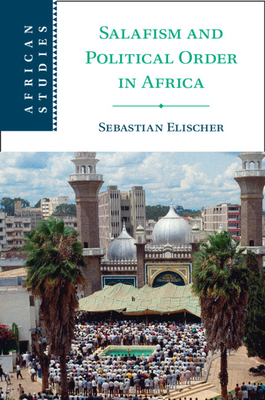Salafism and Political Order in Africa

Salafism and Political Order in Africa
Violent Islamic extremism is affecting a growing number of countries in sub-Saharan Africa. In some, jihadi Salafi organizations have established home bases and turned into permanent security challengers. However, other countries have managed to prevent the formation or curb the spread of homegrown jihadi Salafi organizations. In this book, Sebastian Elischer provides a comparative analysis of how different West and East African states have engaged with fundamentalist Muslim groups between the 1950s and today. In doing so, he establishes a causal link between state-imposed organizational gatekeepers in the Islamic sphere and the absence of homegrown jihadi Salafism. Illustrating that the contemporary manifestation of violent Islamic extremism in sub-Saharan Africa is an outcome of strategic political decisions that are deeply embedded in countries' autocratic pasts, he challenges conventional notions of statehood on the African continent, and provides new insight into the evolving relationships between secular and religious authority.
PRP: 307.20 Lei
Acesta este Prețul Recomandat de Producător. Prețul de vânzare al produsului este afișat mai jos.
276.48Lei
276.48Lei
307.20 LeiLivrare in 2-4 saptamani
Descrierea produsului
Violent Islamic extremism is affecting a growing number of countries in sub-Saharan Africa. In some, jihadi Salafi organizations have established home bases and turned into permanent security challengers. However, other countries have managed to prevent the formation or curb the spread of homegrown jihadi Salafi organizations. In this book, Sebastian Elischer provides a comparative analysis of how different West and East African states have engaged with fundamentalist Muslim groups between the 1950s and today. In doing so, he establishes a causal link between state-imposed organizational gatekeepers in the Islamic sphere and the absence of homegrown jihadi Salafism. Illustrating that the contemporary manifestation of violent Islamic extremism in sub-Saharan Africa is an outcome of strategic political decisions that are deeply embedded in countries' autocratic pasts, he challenges conventional notions of statehood on the African continent, and provides new insight into the evolving relationships between secular and religious authority.
Detaliile produsului










